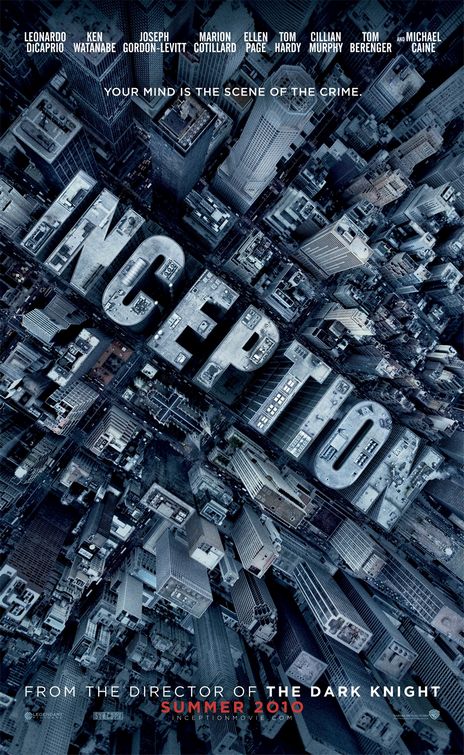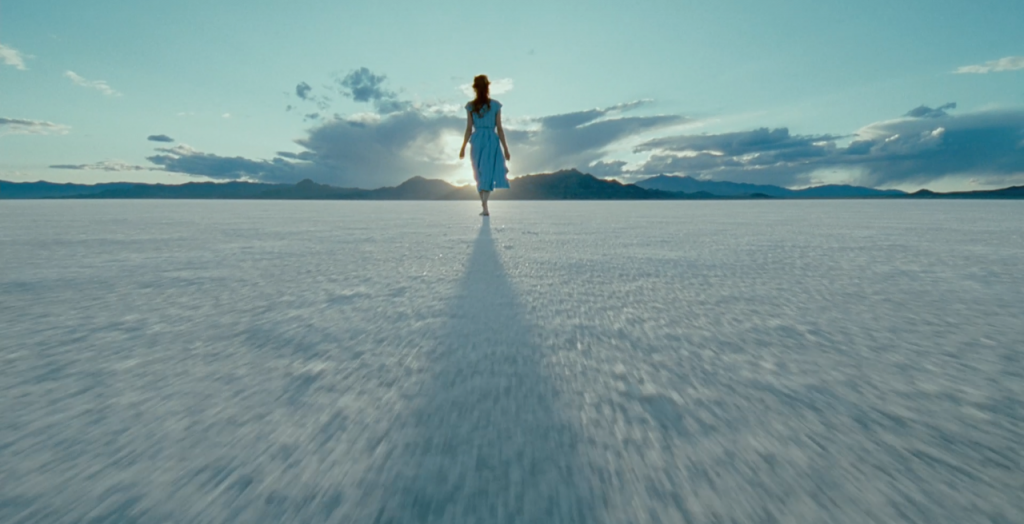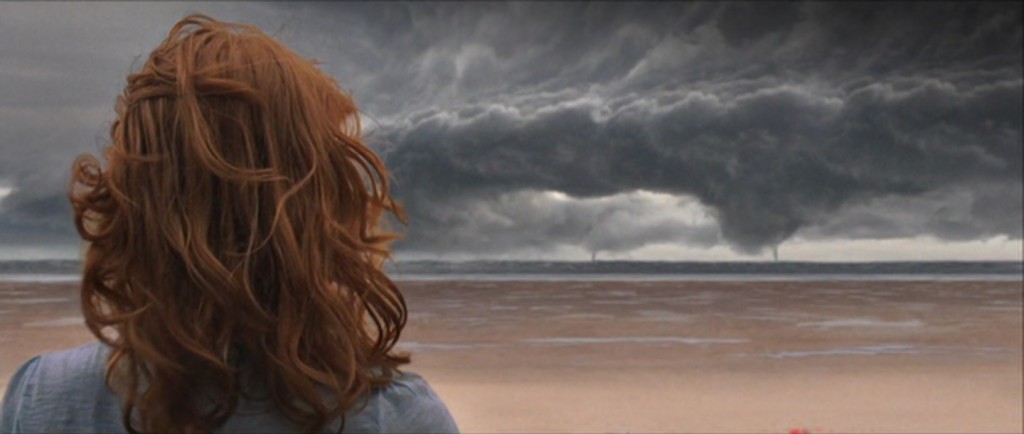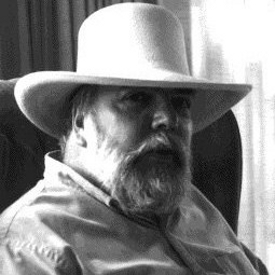 SPOILER WARNING: THIS POST CONTAINS MAJOR SPOILERS FOR INTERSTELLAR, INCEPTION, THE PRESTIGE AND EVEN 2001: A SPACE ODYSSEY. PROCEED AT YOUR OWN RISK.
SPOILER WARNING: THIS POST CONTAINS MAJOR SPOILERS FOR INTERSTELLAR, INCEPTION, THE PRESTIGE AND EVEN 2001: A SPACE ODYSSEY. PROCEED AT YOUR OWN RISK.
Last time I considered the vexed question as to whether Interstellar is too loud. This time I am going to take a look at the reasons why I found Christopher Nolan’s latest film disappointing.
Much the same way Clint Eastwood once alternated between making a potential multiplex crowd-pleaser and a more personal, introspective film for Warner Brothers (say, The Rookie and White Hunter, Black Heart, or The Dead Pool and Bird), so Christopher Nolan alternates between low risk crowd-pleasers (The Dark Knight Trilogy / producing the new Superman films) and more personal, introspective (but still very successful) films for Warner Brothers: The Prestige, Inception, and now, Interstellar (co-produced with Paramount).
I don’t much care about the superhero films. I don’t expect much from them, and was only disappointed by The Dark Knight Rises in that it wasn’t as good as The Dark Knight. But Interstellar is disappointing in a very different way. This is a serious, non-franchise hard science fiction film openly acknowledged by Nolan as being inspired by 2001: A Space Odyssey – not as a slavish homage, but in his ambition to return cinema to intelligent event-spectacle in the way the 70mm epics of the 1960s could be. It was seeing 2001 aged eight that ignited my passion for both cinema and SF, and it seems that the Kubrick/Clarke film had a similar importance in Nolan’s own development. Perhaps no wonder then that Nolan’s best ‘serious’ films, Memento, The Prestige, Inception, became three of my favourite films. Inception finally replaced 2001 as my favourite film, and it takes something for a middle-aged man to change their favourite film after 40 years.
So I had high hopes for Interstellar, but was equally prepared for it to be disappointing. It was hardly likely to live up to Inception. But it was another serious slice of Nolan SF with a one word title beginning with the letter I. Still, I wasn’t surprised to be disappointed. What surprised me was, especially after the hype, how simple, straight-forward and lacking in cinematic ambition Interstellar proved; and how clumsily plotted it was coming from the filmmaker who, in Memento, The Prestige and Inception delivered vastly more complex stories in which every detail interlocked with perfect precision to produce films which functioned simultaneously on several levels.
I was also surprised that in essence the story was essentially a palimpsest of Inception stretched over the structure of 2001: A Space Odyssey. Don’t believe me? First, here’s the structure:

2001: A Space Odyssey:
1st Act – earth bound set up which introduces the central mystery
2nd Act – long second section of hard SF space adventuring
3rd Act – metaphysical ‘Stargate’ finale in which space and time become very strange
Interstellar:
1st Act – earth bound set up which introduces the central mystery
2nd Act – long second section of hard SF space adventuring
3rd Act – metaphysical ‘Tesseract’ finale in which space and time become very strange
The major difference is that Interstellar then continues with a prosaic epilogue.
But how does this relate to Inception? In both films a widower goes on a long, dangerous and surreal journey to get back to his children. Inception has three dream levels where time runs at different rates and the very strange, timeless, Limbo; Interstellar has three planets where time runs at different rates, and the very strange, timeless, Tesseract. In Inception the fantastical realms are mediated via secret government technology. In Interstellar the fantastical realms are mediated via secret government technology (NASA has gone underground). Both films end with the widower reuniting with members of his family. Interstellar is a remake of Inception grafted onto the structure of 2001: A Space Odyssey. (And yes, one can argue this is simply a recurring Nolan theme, in that his The Prestige, unlike Christopher Priest’s original novel, is eventually revealed as a long, dangerous and surreal journey in which a man returns home to his daughter).
 Meanwhile, in lieu of a full review – there are plenty of those around the internet, here are some specific points explaining my disappointment with Interstellar, either as SF or as cinema, further.
Meanwhile, in lieu of a full review – there are plenty of those around the internet, here are some specific points explaining my disappointment with Interstellar, either as SF or as cinema, further.
1: No matter how badly the earth’s environment has been degraded it will be better for growing indigenous crops than an alien planet. Which undermines the very basis of the space mission which is the heart of the story.
2: We are expected to believe that NASA has to operate in secret, and that it is managing to run a space programme which involves the construction of an Apollo scale rocket, and is managing to do so without anyone noticing all the thousands of people, material and equipment which must come and go on a daily basis.
3: A small point this, but really – the rocket is being built on the other side of Michael Caine’s office wall. This seems implausible, to put it mildly.
4: NASA doesn’t have a pilot, doesn’t appear to be training one, yet the mission is ready to go, so Michael Caine decides that any ex-astronaut who happens to stumble across their top secret HQ will do.
5: Said former astronaut, now farmer, is so ignorant of space related matters that he can stand as a proxy for the audience as everything is explained to him in some of the clunkiest expositional dialogue spoken on screen in a long time.
6: It would seem obvious, when arriving in orbit around an unfamiliar planet, to make some observations before descending to the surface. That way one might notice that a) there doesn’t seem to be any land (which would make the planet a bad choice for growing crops) and b) that there are some really big waves.
7: The big docking set-piece, which nearly everyone seems to love, is ludicrous. We are supposed to believe that anyone, let alone the film’s out-of-practice space jockey, can match the rotation and angle of a spaceship which is spinning wildly out of control so precisely as to achieve a successful docking maneuver. This is supposed to be a serious SF film. Not a Michael Bay movie.

8: It is irritating to have to strain to hear the dialogue. In respect to this I suspect Nolan has been influenced by the work of Terrence Malick too much, a filmmaker who has taken to making much of the dialogue barely audible in his recent films. The evidence: the presence of Jessica Chastain, who starred in Malick’s Tree of Life (2010), to which Interstellar has many similarities, and who also starred in Take Shelter (2011), a film which might essentially be a prologue to Nolan’s latest, and which was executively-produced by Malick’s long time producer, Sarah Green. Malick advised director Jeff Nichols, who then went on to make Mud (2012), which starred Interstellar‘s male lead, Matthew McConaughey.
9: Interstellar feels emotionally remote, which is in part due to the cast displaying a remarkable lack anything like the charisma, watchability and plain old fashioned movie star appeal of Leonardo DiCaprio, Marion Cotillard etc. You can’t take your eyes off the casts of Memento, The Prestige or Inception. Here only Chastain comes across with real star power. The often hugely charismatic Matthew McConaughey here seems so muted he barely resembles the actor who first electrified the screen in films like A Time To Kill. Michael Caine is of course great, but his is very much a tiny supporting role.
10: Given it comes almost 50 years after 2001: A Space Odyssey, Interstellar isn’t even all that spectacular. The digital projection looked brown and murky. Perhaps it plays better in 70mm. I wanted, as implied by the title, grand cosmic vistas between the stars. I’m still waiting.

I also wanted a fresh, complex story. Anyone who has read Arthur C. Clarke, or Stephen Baxter, or even seen some of the more interesting episodes of Babylon 5, will have found nothing fresh or original here. Considering the much vaunted involvement of physicist Kip Thorne, Doctor Who plays fast, loose and much more elaborately, and often to greater emotional effect, with this timey-wimey 101 stuff most weeks.
While the finale 30 minutes has some emotional heft, the awe and sense of wonder of great SF is almost entirely missing. If, as Nolan implied, he aim was to make the equivalent of 2001 for the new millennium, all he has succeeded in producing is a mumble-core Photostat with his regular obsessions bolted on top.
Which is not to say that I didn’t enjoy Interstellar, or that I won’t see it again. If it had been a second film by a new director I would have thought it showed considerable promise. But as a major work from the most accomplished filmmaker of the last decade, it is a major step backwards.
There is one thing I love about the film, and that is Hans Zimmer’s score. It is by far the best thing about Interstellar. It captures a sense of the vastness of space and deep time, of the stark loneliness, terror and beauty, much better than the film itself. And it stands up tremendously well as music by itself. It’s just a shame about the debacle surrounding the soundtrack album. About which more another time.
I am still puzzled that so many people are rating Interstellar so highly. Is it that they don’t want to admit their disappointment, or is it that they have become so accustomed to mediocrity that something which is at least interesting enough to want to see a second time seems like a masterpiece?
*
To read my previous post about Interstellar click here. Or here for my interview with Christopher Priest in which he discusses The Prestige.











Yeah, very disappointed. I like Nolan (and particularly Inception). My disappointment reminded me of the disappointment I had with Lynch’s Dune.